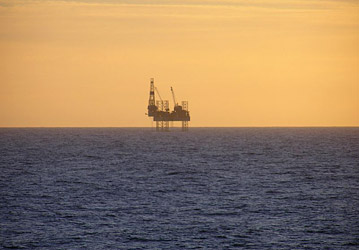North Sea Oil and Gas Falls Sharply
Record decline in production of 22% expected this year
Britain’s North Sea oil and gas fields are predicted to decline again this year. These fields are ageing and well past their peak, which was in 1999. Since 2000 the number of barrels of oil extracted per day has fallen from 3 million down to 1.54 million in 2012 and is predicted to fall further this year to somewhere between 1.2 million and 1.4 million or around 22%. Britain is now a net importer of oil, and this has serious consequences for the economy. Natural gas production has also been in decline since 2000.
Despite record investment in the North Sea, £13.5bn this year, production continues to decline, partly as a result of old and depleted fields, but also the infrastructure is also ageing, making it more difficult to produce oil and gas because of shutdowns for maintenance or following accidents, like the escape of gas in Total’s Elgin field in 2012.
The Department of Energy and Climate Change (DECC) has appointed an industry specialist, Sir Ian Wood, formerly chairman of consulting group Wood Services to investigate and report on the how to maximise recovery of reserves in the fields.

The continuing decline of oil and gas reserves is probably one of the drivers behind the UK government’s increased support for “fracking” in the hope that this will offset some of the reduction in offshore fuels produced. The high price of oil (at $110 per barrel or about £70) is one of the damping factors on the economy, as virtually everything made or transported has an oil cost added to it, which makes higher prices for both raw materials and finished goods inevitable. This makes recovery from the current economic problems in the UK doubly difficult and the option to head for a greener economy by shifting from dangerous fossil fuels to renewables a necessity, although it is hard to see the current government accepting this perspective.
Visit GreenJobs for the latest Alternative Energy Jobs.


